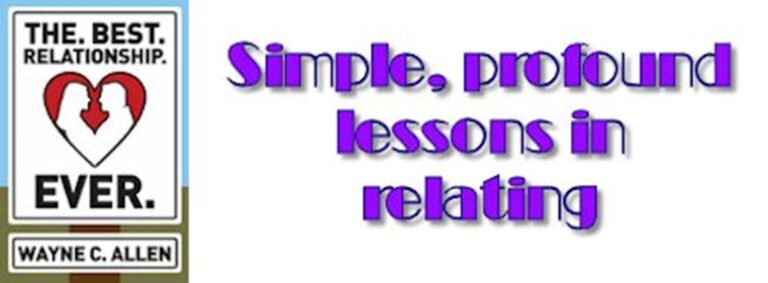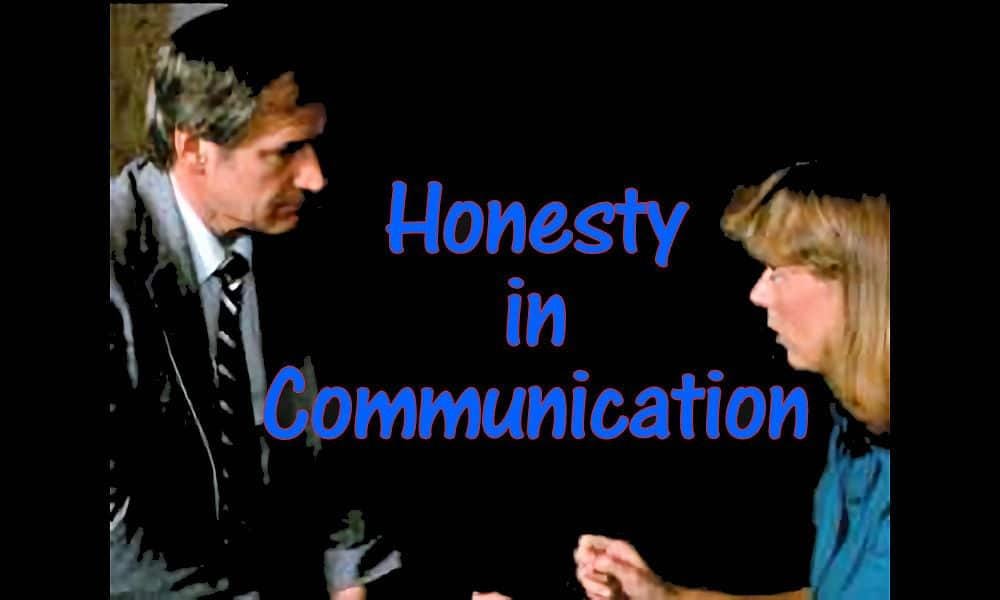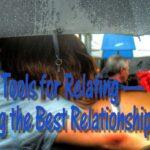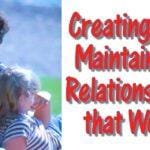Honesty in Communication — this is definitely a self-help project, as all you can do, even in relationship, is work on yourself.
Of Wayne’s many books, the one closest to today’s topic is: The. Best. Relationship. Ever.

The. Best. Relationship. Ever.
Purchase all formats at Amazon
Purchase digital versions (Apple, Nook, Kobo, etc.) from this page
Here’s the list we’re working on:
• I can only commit to an action — to something I will do.
• I commit to being in relationship with you. Here is what I commit to:
• I will be open, honest and vulnerable in my daily communication with you.
• I will tell you, today, who I am and what I am thinking.
• I will tell you, today, everything I have done, and what it meant to me.
• I will listen to you with curiosity and interest, today.
• I will accept that you are who you are today, and will integrate who you are today with my picture of you from “yesterday.”
• I will make myself fully available and present to and with you, today, and engage in clear and concise communication with you for not less than 30 minutes, today.
• I will own all of my thoughts, feelings, emotions and interpretations, working to take full responsibility for each and every one of them. If I slip and go into blaming, I will stop myself, apologise, and return to self-responsibility.
• I will actively encourage you to listen to me and to actively hold me to the performance of what I have committed to.
• I will commit to all of these things, without any expectation of anything from you, as all I can ever commit to is to what I can and will do.
Today we’ll look at the following three points from the above list:
- · I will be open, honest and vulnerable in my daily communication with you.
- · I will tell you, today, who I am and what I am thinking.
- · I will tell you, today, everything I have done, and what it meant to me.

a heartfelt sense of “being with.”
The only way to build and maintain an excellent relationship is through the rigorous implementation of useful actions. To repeat the obvious, the key to successful anything is action as opposed to talk.
This week’s three points are absolute, as opposed to conditional.
In the past I’ve mentioned how much Darbella and I have learned from our study of OSHO, the Indian guru “formerly know as Bhagwan Rajneesh.”
In his book Intimacy, OSHO makes the case for self revelation:
“Unless you drop all your repressions and inhibitions—which are the gifts of your religions, your cultures, your societies, your parents, your education—you will never be able to be intimate with someone. You will have to take the initiative.” pg viii
“You have to accept yourself in your totality. If you cannot accept yourself in your totality, how can you expect somebody else to accept you? ” pg viii
OSHO said that it is “normal” for someone to hate an aspect (or several) of themselves, and then expect their partner to “accept them as they are,” or “fix them.” This is weird — such people believe that love is all about the other person behaving as they want them to.
OSHO wondered why anyone would accept you, if you don’t accept you.
One answer to this question is that one’s partner also hates him or herself, so there’s a meeting of two dysfunctional people; this is the meaning of the adage, “Misery loves company.”
Because many marry or get together out of a need to be unconditionally accepted, each person expects the other person to “make it all better.” This is a sure recipe for disaster.
Before we dig in, let me also note that, in the latter two points for the day, I have included the word “today.” It’s there for a reason.
Often, people in love say the strangest things, like “I’ll love you forever! I’ll always be there for you! I love everything about you.” This is the height of dumb, as all we ever have is… you guessed it… today.
Love makes us stupid, and so does day-to-day living. Given our greatest fears — death and change — we seem almost compelled to hold on to what is happening by claiming it will go on forever. Then, when forever ends, (as it always does) the accusations of “You lied to me!” come to the fore.
Lets get back to our points
Today’s three points are all the same. Each requires the speaker to be open, honest, and revealing. There can be no hidden material, no hidden agendas. This requires great discipline.
OSHO wrote about the origins of our resistance to self-revelation.
It’s pretty simple. We hate whole aspects of our selves. We feel our emotions directly, yet fear their expression. We create movies in our heads, and thank god no one else can see the things we say and do in there. We are sure that if our partner ever knew what went on inside of us, they’d run for the door.
And we assume that we are the only one like this. We pray that no one catches us out, and hope that, if we slip, our partner will cut us slack.
Then, our partner lets one of their cats out of the bag, and we pounce. “You lied to me! You disappointed me! You’ve been lying to me!” We conveniently forget all of the crap we’ve been stuffing, and turn the whole thing inside out, judging “the other” our partner has become.
Forever, we have been suggesting the alternative — self-responsible self-revelation. The suggestions above are the beginning of true intimacy.
It’s a simple as, “If I have nothing to hide, there is nothing hidden.”

Simple, profound lessons in relating
The. Best. Relationship. Ever.
Purchase all formats at Amazon
Purchase digital versions (Apple, Nook, Kobo, etc.) from this page
Now, admittedly, this flies in the face of every bit of cultural conditioning we’ve received.
We’ve been trained to blame and minimise — to give the “proper excuses.” “I am so angry, and it’s his fault.” Or, “I am really sad, and you would be too if all of this had happened to you.” Or, “Here are all the reasons I can’t stop criticizing.”
Therapy and Bodywork are two experiences that lend themselves to the practice of being open, honest and vulnerable — it’s kind of the point. Excuses for a feeling are not required. In fact any therapist worth their salt will tell you to park the reasons and get to the feelings, as the reasons are just stories you’ve made up after the fact to justify what you are feeling.
I’d love to tell you that most of the people I saw for therapy were fully open in their self-disclosure, but that would be untrue. The conditioning to lie to oneself and to others runs deep. The excuses and explanations are often all the person knows. That is the point of therapy — to get past the superficial part to what’s really going on.
Trust, interestingly, is not created by being in a relationship. Trust is a personal trait or perspective.
What I mean is that I do not create the conditions for the person I’m with to feel safe enough to speak. If this were the case, others could only speak their truth when the people around them were behaving perfectly.
No, as OSHO says, this project is totally about one’s willingness to open up and say what’s going on, because that’s the only way to get anywhere. In this process of saying, of revealing, one learns to respect and forgive and (horrors!) even like oneself.
Revelation and acceptance is an inside job.
Be aware, this week, of how many times you keep yourself from being fully open and revealing with your therapist, your partner, yourself. Listen and see if you’re presenting excuses and justifications as opposed to open, honest, vulnerable communication. Then, see what happens as you begin to self-disclose.
And remember, you may just discover that some of the people you’ve had around you for a while really don’t want to know you, don’t want honesty, because they are afraid of letting their stuff out. Better to know this and either go for therapy or find a new partner. (Or both.)
Life is short, and taking your time with this work is plainly dumb. Make a commitment to be honest with yourself, open and vulnerable and honest with others. And commit to moving away from relationships where openness, honesty, and vulnerability is not encouraged.
You do not have forever. So, start.





